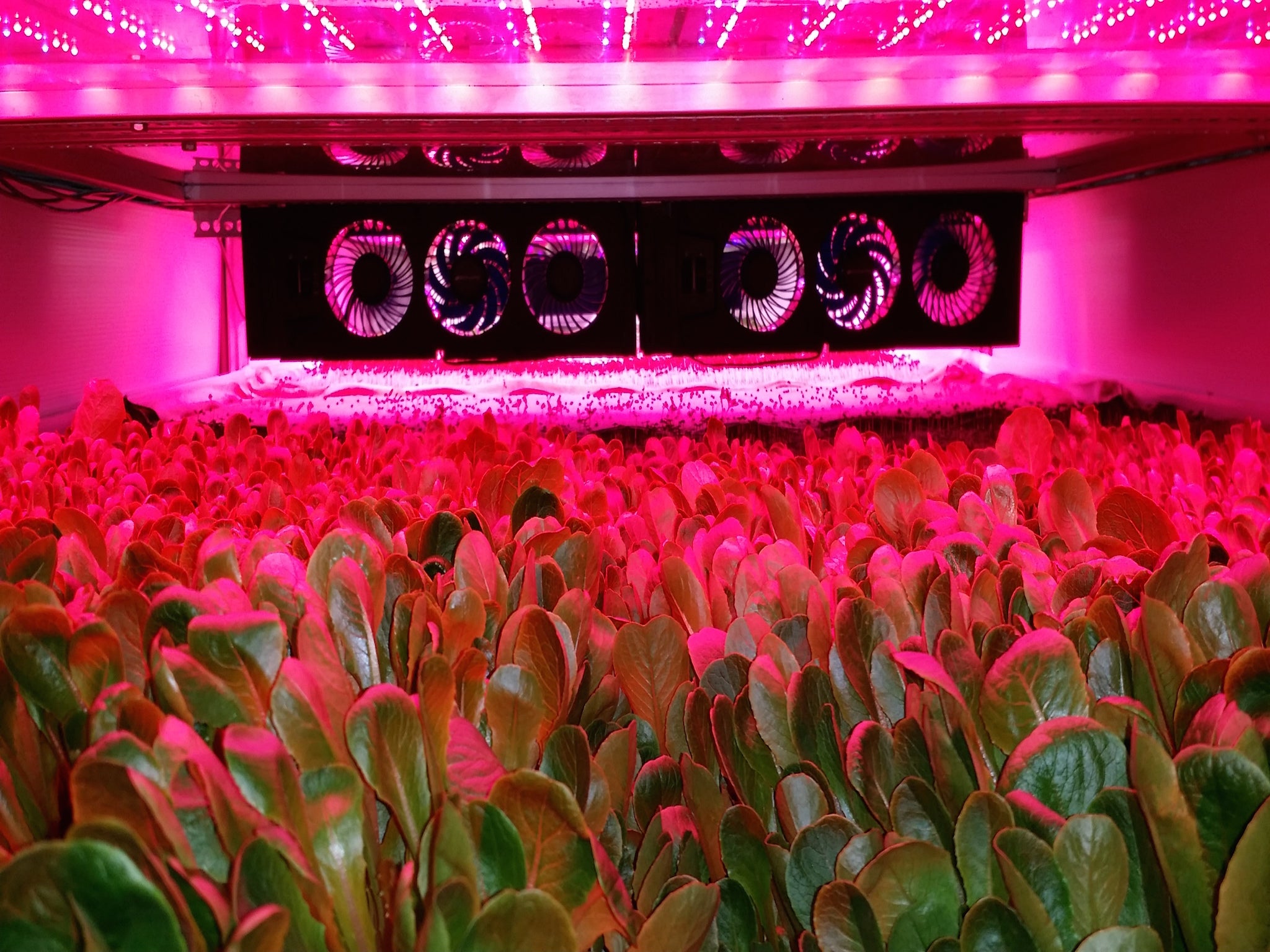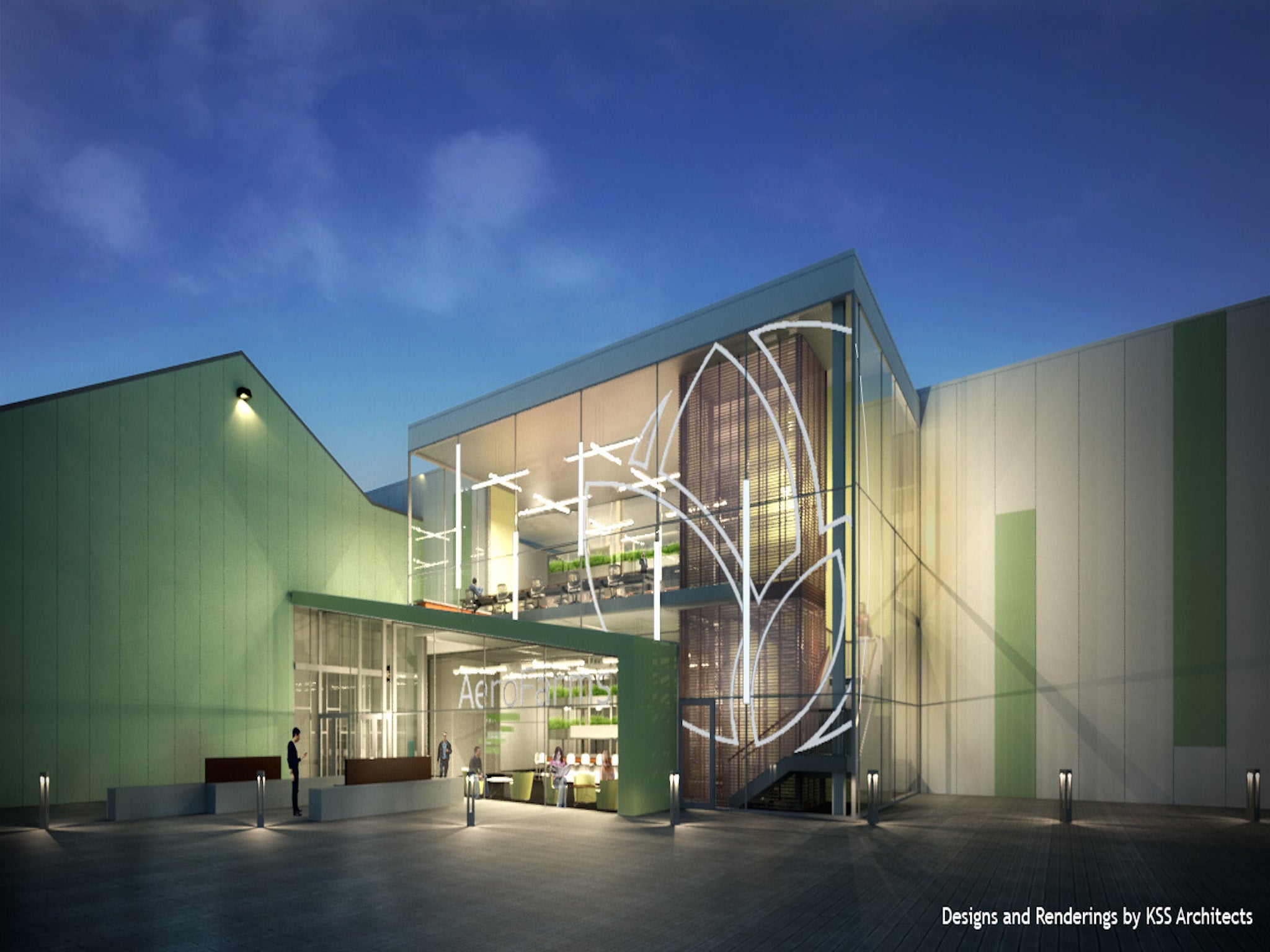AeroFarms: Work starts to build world's largest vertical urban farm in Newark
Company says its system of growing uses 95% less water than growing in a field

Right now, the site of the former Grammer, Dempsey and Hudson steel plant in the city of Newark is a place in motion.
Some of the old structures have already been pulled down and teams are setting about an urban overhaul that is seeing $39m injected into a project to grow and produce food by means of aeroponics technology.
If all goes to plan, by the end of the year, the site will be on its way to becoming the world’s largest producing vertical farm and growing up to two million pounds of greens and herbs every year.

“We are trying to fundamentally transform the way we approach agriculture,” Marc Oshima, a co-founder of AeroFarms, the company behind the project, told The Independent. “It’s about bringing food to where the consumers are.”
The company, which already operates several vertical farm at urban locations in the US, claims there are huge advantages to producing food in this manner, not least the fact that they can have up to 30 harvests a year.
Mr Oshima said for plants such a kale and spinach, the growing time was between 30 to 40 days in a field. In their growing sheds – lit by LED lighting and with nutrients provided via cloths surrounding the plants – the period is reduced to 12-16 days.
He said most of the green leafy plants consumed in the US were grown in either Arizona or else Salinas, in California. The urban farm concept drastically reduced the time spent transporting the vegetables to market place, and cut down the energy used to do so.
The company, which is looking to develop 25 farms in the next five years and is already looking at the opportunities in the UK, says its growing method uses 95 per cent less water than growing in a field and yet produce 70 time as much spinach could be grown in normal conditions.
“This way we can control everything about the way we grow,” said Mr Oshima. “There are 10,000 data points that we monitor during that growing.”
The 69,000-square-foot project in the converted steel factory in Newark’s Ironbound section is being developed by the RBH Group and will reportedly include offices, laboratories as well as a cafe. AeroFarms is its sole tenant.
Goldman Sachs is providing most of the $39m investment through its Urban Investment Arm.
“AeroFarms’ innovative vertical farming technology will help boost the local economy, promote healthy food options locally, and support environmental sustainability,” said Margaret Anadu, Managing Director in the Goldman Sachs Urban Investment Group.
She added: “Importantly, the project will also create high-quality, accessible local jobs, marking an important step in the continued revitalisation of the Ironbound neighbourhood.”
Join our commenting forum
Join thought-provoking conversations, follow other Independent readers and see their replies
Comments
Bookmark popover
Removed from bookmarks